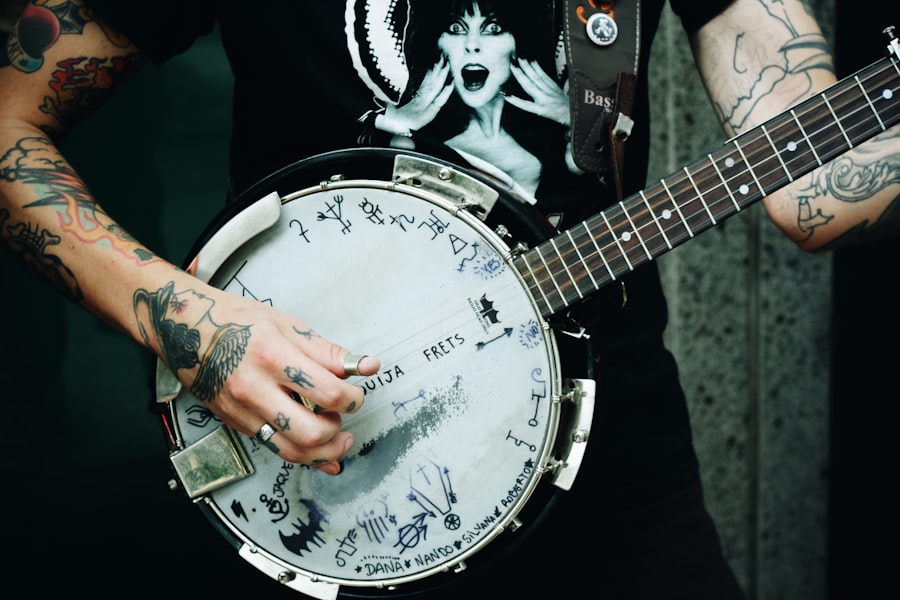Music marketing is a critical component of the music industry, serving as the primary means of promoting and distributing music to audiences. Effective marketing strategies are essential for artists to gain recognition and reach their target listeners. Professionals in music marketing roles are responsible for creating awareness, generating interest, and driving sales for music releases, concerts, and related events.
They develop and implement campaigns designed to resonate with specific audiences, foster brand loyalty, and generate revenue for artists and the industry. Beyond promoting releases, music marketing professionals are integral to building and managing artists’ brands. They collaborate with artists to craft their public image, develop compelling narratives, and engage with fans through various channels including social media, email marketing, and public relations.
The goal of music marketing extends beyond mere sales; it aims to create emotional connections between artists and their audience. These connections encourage fans to support artists by attending concerts, purchasing music, and engaging with their content. Ultimately, music marketing plays a vital role in the success and long-term viability of the music industry.
Key Takeaways
- Music marketing jobs are crucial for promoting artists and their music to a wider audience and increasing their visibility in the industry.
- Essential skills for a successful career in music marketing include strong communication, creativity, digital marketing expertise, and a deep understanding of the music industry.
- Job opportunities in the music marketing industry include roles such as marketing manager, social media manager, publicist, and digital marketing specialist.
- To stand out in the competitive music marketing job market, it’s important to showcase a unique perspective, stay updated on industry trends, and demonstrate a strong passion for music.
- Networking and building relationships in the music industry is essential for career advancement, as it can lead to new opportunities, collaborations, and industry connections.
Essential Skills for a Successful Career in Music Marketing
Effective Communication: The Foundation of Music Marketing
Strong communication skills are vital for conveying the artist’s message to the target audience. This includes writing compelling press releases, crafting engaging social media posts, and pitching to media outlets. Music marketing professionals must be able to communicate effectively and persuasively to achieve their goals.
Digital Marketing Expertise: A Must-Have in Today’s Music Industry
A deep understanding of digital marketing is crucial in today’s music industry. Professionals need to be well-versed in social media marketing, email marketing, search engine optimization (SEO), and other digital strategies to effectively promote music releases and engage with fans online.
Creativity, Project Management, and the Key to Success
Creativity is essential for developing innovative marketing campaigns that capture the audience’s attention and set the artist apart from the competition. Additionally, strong project management skills are necessary for juggling multiple campaigns, deadlines, and stakeholders in the fast-paced music industry. A successful career in music marketing requires a combination of creativity, communication, digital marketing, and project management skills.
Job Opportunities in the Music Marketing Industry

The music marketing industry offers a wide range of job opportunities for professionals with diverse skill sets and interests. From entry-level positions to senior roles, there are various career paths available for individuals passionate about music and marketing. Some common job titles in the music marketing industry include marketing coordinator, digital marketing manager, public relations specialist, social media manager, and brand manager.
These roles may be found within record labels, artist management companies, music streaming platforms, concert promotion companies, and more. In addition to traditional music marketing roles, there are also opportunities for specialized positions in areas such as influencer marketing, content creation, data analysis, and event planning. With the rise of digital platforms and social media, there is an increasing demand for professionals who can leverage these channels to promote music and engage with fans.
Furthermore, as the music industry continues to evolve, new job opportunities are emerging in areas such as live streaming events, virtual concerts, and immersive experiences. Overall, the music marketing industry offers a diverse range of job opportunities for individuals with a passion for music and a knack for marketing.
How to Stand Out in the Competitive Music Marketing Job Market
| Skills | Experience | Education |
|---|---|---|
| Social media marketing | 2 years in music industry | Bachelor’s degree in Marketing |
| Content creation | Internship at music label | Certification in Digital Marketing |
| Data analysis | Freelance work for musicians | Online courses in Music Business |
In a competitive job market like music marketing, standing out is essential for landing coveted positions and advancing in your career. One way to stand out is by gaining practical experience through internships or freelance projects. Hands-on experience not only demonstrates your skills and knowledge but also provides valuable insights into the inner workings of the music industry.
Additionally, building a strong personal brand can help you stand out from other candidates. This can be achieved by creating a professional online presence through a personal website or blog that showcases your work, thoughts on industry trends, and accomplishments. Networking is another crucial aspect of standing out in the music marketing job market.
Building relationships with industry professionals through networking events, conferences, and social media can open doors to new opportunities and mentorship. Furthermore, staying up-to-date with industry trends and continuously learning new skills can set you apart from other candidates. Whether it’s mastering new digital marketing tools or understanding emerging music trends, staying ahead of the curve demonstrates your commitment to growth and adaptability.
Finally, showcasing your passion for music and genuine interest in the artists you work with can make a lasting impression on potential employers. By demonstrating your enthusiasm for the industry and its artists, you can differentiate yourself from other candidates in the competitive music marketing job market.
Networking and Building Relationships in the Music Industry
Networking and building relationships are essential components of success in the music industry, especially in music marketing. Building a strong network of industry contacts can lead to new job opportunities, collaborations, mentorship, and valuable insights into industry trends. Networking can take place through various channels such as industry events, conferences, social media platforms like LinkedIn, and professional organizations like the American Marketing Association or the International Music Managers Forum.
When networking in the music industry, it’s important to approach it with authenticity and genuine interest in building meaningful connections. Instead of focusing solely on what others can do for you, take the time to learn about others’ work, offer assistance when possible, and build mutually beneficial relationships. Additionally, maintaining relationships with colleagues and industry professionals over time is crucial for long-term success in the music industry.
Whether it’s sending a congratulatory message on a colleague’s work anniversary or catching up over coffee with a former coworker, nurturing relationships can lead to new opportunities down the line. In addition to traditional networking methods, leveraging social media platforms can also be an effective way to build relationships in the music industry. Engaging with industry professionals on platforms like Twitter or Instagram by sharing insights on industry trends or commenting on their work can help you stay on their radar.
Furthermore, joining online communities or forums related to music marketing can provide opportunities to connect with like-minded professionals and exchange ideas. Overall, networking and building relationships are essential for advancing your career in music marketing and navigating the dynamic landscape of the music industry.
The Role of Digital Marketing in the Music Industry

The Power of Social Media
Social media platforms like Instagram, TikTok, and Twitter have become essential channels for promoting new releases, connecting with fans, and building an artist’s brand. Through engaging content such as behind-the-scenes footage, live Q&A sessions, or interactive challenges, artists can create a direct connection with their audience and foster fan loyalty.
Email Marketing and Personalization
Email marketing is another crucial component of digital marketing in the music industry. By building an email list of fans who have opted in to receive updates from the artist, music marketers can deliver personalized content such as exclusive access to pre-sale tickets or limited edition merchandise. Additionally, email marketing allows for direct communication with fans about upcoming releases, tour dates, and other important announcements.
Targeted Advertising and SEO
Search engine optimization (SEO) is vital for ensuring that an artist’s content ranks high in search engine results when fans are looking for their music or upcoming events. Furthermore, digital advertising has become an integral part of music marketing strategies. Platforms like Facebook Ads and Google Ads allow music marketers to target specific demographics based on factors such as age, location, interests, and online behavior, enabling them to reach potential fans who are most likely to resonate with an artist’s music and message.
Tips for Advancing Your Career in Music Marketing
Advancing your career in music marketing requires continuous learning, adaptability to industry changes, and a proactive approach to professional development. One way to advance your career is by seeking out mentorship from experienced professionals in the industry. A mentor can provide valuable guidance on navigating career challenges, expanding your skill set, and making strategic career decisions.
Additionally, pursuing further education through courses or certifications in areas such as digital marketing or data analysis can enhance your expertise and make you more competitive in the job market. Another tip for advancing your career in music marketing is to seek out leadership opportunities within your current role or through volunteer work in industry organizations. Taking on leadership responsibilities not only demonstrates your ability to take initiative but also provides valuable experience in managing teams and projects.
Furthermore, staying informed about industry trends through publications like Billboard or Music Business Worldwide can help you anticipate changes in the industry and adapt your strategies accordingly. Finally, being open to taking calculated risks can lead to new opportunities for career advancement in music marketing. Whether it’s pursuing a new role at a different company or taking on a challenging project outside of your comfort zone, embracing change can lead to personal growth and new career prospects.
By continuously seeking out learning opportunities, building strong relationships within the industry, and staying adaptable to change, you can advance your career in music marketing and achieve long-term success in this dynamic field. In conclusion, music marketing jobs play a vital role in promoting artists’ work and driving success in the music industry. To excel in this field requires a diverse set of skills including communication abilities; digital marketing expertise; creativity; project management skills; practical experience; networking; relationship-building; knowledge of digital marketing; adaptability; continuous learning; leadership; mentorship; staying informed about industry trends; embracing change; taking calculated risks; passion for music; genuine interest in artists; authenticity; proactive approach to professional development; seeking out learning opportunities; building strong relationships within the industry; staying adaptable to change; advancing your career; achieving long-term success in this dynamic field.
Overall, individuals passionate about both music and marketing have a wide range of job opportunities available within this exciting field. By honing their skills; gaining practical experience; networking; building relationships; staying informed about industry trends; embracing change; taking calculated risks; seeking out learning opportunities; building strong relationships within the industry; staying adaptable to change; advancing their careers; achieving long-term success in this dynamic field – they can make a meaningful impact on artists’ careers while contributing to the vibrancy of the music industry as a whole.
If you’re looking to break into the music industry, you may want to check out this article on music-influencer.com. This website offers valuable insights and resources for aspiring musicians and music professionals. Whether you’re a singer, songwriter, producer, or music marketer, you’ll find helpful tips and advice to help you succeed in the competitive music business. Additionally, you can also read their introductory post here to get a sense of what the website has to offer.
FAQs
What are marketing music jobs?
Marketing music jobs involve promoting and advertising music and musicians to increase their visibility and reach their target audience. This can include creating marketing strategies, managing social media accounts, organizing events, and building relationships with media outlets.
What are the typical responsibilities of a marketing music job?
Typical responsibilities of a marketing music job may include creating and implementing marketing plans, managing social media accounts, coordinating promotional events, building relationships with media outlets, and analyzing marketing data to measure the effectiveness of campaigns.
What skills are required for marketing music jobs?
Skills required for marketing music jobs may include strong communication and interpersonal skills, creativity, knowledge of digital marketing tools and platforms, understanding of the music industry, and the ability to work in a fast-paced and dynamic environment.
What education or experience is needed for marketing music jobs?
A degree in marketing, communications, or a related field may be beneficial for marketing music jobs. Experience in marketing, particularly within the music industry, can also be valuable. Internships or entry-level positions in marketing can provide relevant experience.
What are the career prospects for marketing music jobs?
Career prospects for marketing music jobs can vary depending on the individual’s skills, experience, and networking abilities. With the growth of digital marketing and the music industry, there may be opportunities for advancement and specialization in areas such as social media marketing, artist management, or event promotion.




